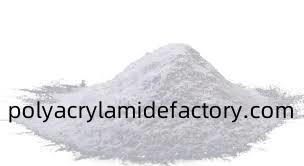Notifications

3 minutes, 5 seconds
-112 Views 0 Comments 0 Likes 0 Reviews

In the papermaking industry, polyacrylamide is a key additive that enhances retention, drainage, and improves overall production efficiency. When selecting the right type, manufacturers often compare cationic and anionic papermaking polyacryalmide based on system needs and pulp characteristics.
Cationic polyacrylamide carries a positive charge and is widely used as a retention aid and dewatering agent. It is highly compatible with negatively charged pulp systems such as mechanical pulp or recycled fiber. This type is especially effective at binding fine particles and improving the clarity of white water.
Anionic polyacrylamide, on the other hand, carries a negative charge and is commonly used in white water treatment, fiber recovery, and sludge thickening. It performs well in alkaline environments and works effectively with cationic agents or systems rich in mineral fillers.
Here is a simplified comparison of the two:
| Type | Charge Type | Common Uses | Pulp Compatibility |
|---|---|---|---|
| Cationic Polyacrylamide | Positive | Retention, dewatering, flocculation | Best for anionic-rich systems |
| Anionic Polyacrylamide | Negative | Wastewater, fiber recovery, thickening | Best for cationic-rich systems |
Your choice depends on several key factors:
Pulp type: Cationic polyacrylamide performs well with hardwood pulps and recycled fibers. Anionic types are ideal for systems with high filler or ash content.
System pH: Anionic PAM works better in alkaline conditions, while cationic PAM is more versatile across various pH ranges.
Performance goals: If your focus is on enhancing paper strength and improving retention, cationic is a strong choice. For water treatment and fiber recovery, anionic types are more effective.
Some mills also use dual-polymer systems, combining both types to achieve a balance between retention and water clarity. This requires proper testing to find the ideal dosage and ratio.
If you're looking for dependable and high-performance papermaking polyacrylamide, our factory offers a complete range of both cationic and anionic types. With our deep expertise in paper chemistry and manufacturing processes, we help our customers optimize their production and lower operational costs.
At Polyacrylamidefactory, we are committed to delivering tailored solutions, consistent quality, and expert technical support. Let us help your paper production process become more efficient, sustainable, and cost-effective.
Learn more at: https://www.polyacrylamidefactory.com

